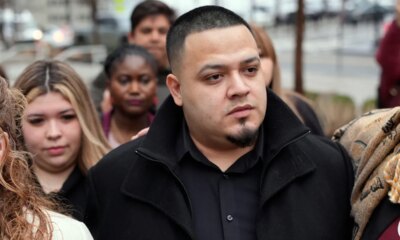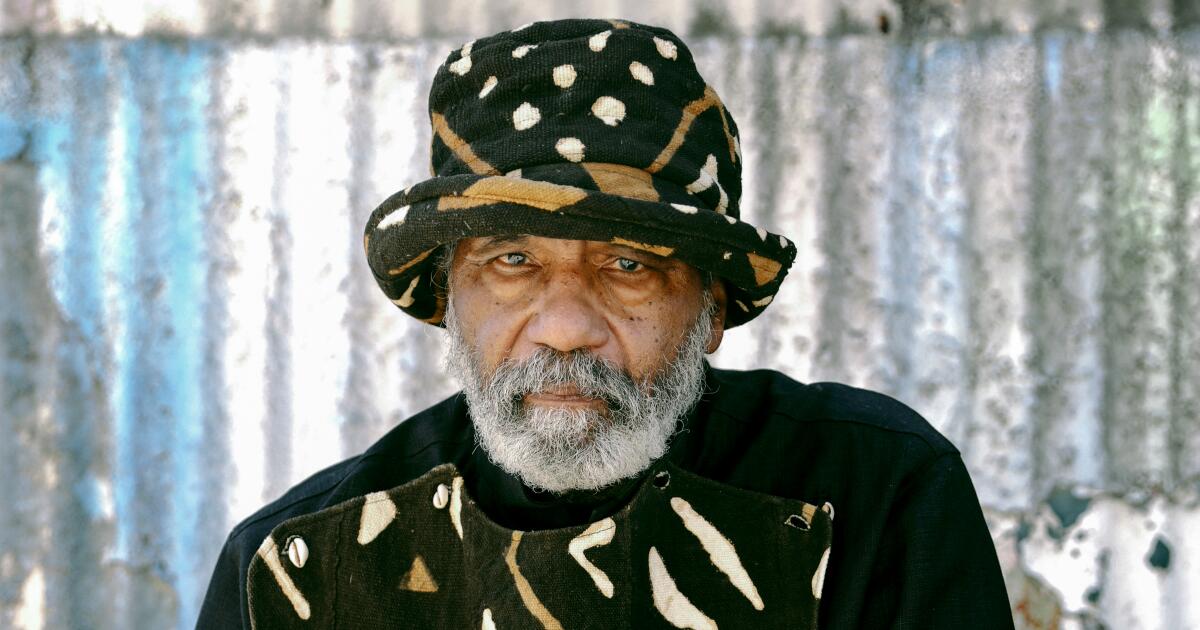Education
How the G.O.P. Went From Championing Campus Free Speech to Fighting It

As conservatives fought against cancel culture on college campuses, they developed a particular fondness for the First Amendment. It was un-American, they argued, to punish someone for exercising their right to speak freely.
Today, however, many of those same conservatives, now in power in state and federal government, are behind a growing crackdown on political expression at universities, in ways that try to sidestep the Constitution’s free-speech guarantees.
President Trump and Republican lawmakers say that new laws and policies are necessary to protect students from harmful and objectionable content, to prevent harassment and to discourage conformity.
To that end, Mr. Trump has threatened to withhold hundreds of millions of federal dollars from universities because they moved too slowly to quell protests that left many Jewish students feeling threatened. And Republicans in state legislatures have drafted sweeping prohibitions against classroom “indoctrination” and the display of certain L.G.B.T.Q. symbols. They have also demanded the removal of art they consider inappropriate.
In some cases, the Trump administration has said existing federal law already gives the president all the power he needs to act. When Mr. Trump said he would deport student activists, for example, he claimed to be acting in the interest of American foreign policy.
Tellingly, administration officials have said they are not bound by the First Amendment when it comes to noncitizens.
“This is not about free speech,” said Secretary of State Marco Rubio. “This is about people that don’t have a right to be in the United States to begin with. No one has a right to a student visa. No one has a right to a green card.”
Critics of this broad approach, including some on the right, say Republicans are being just as heavy-handed and censorious as they claimed the left was toward them.
“That makes the situation so much worse,” said Greg Lukianoff, chief executive of the Foundation for Individual Rights and Expression, a free-speech group that often represents moderates and conservatives who claim they’ve been retaliated against for their political views.
“Now we have all this federal pressure and pressure from state governments — sometimes really direct and clear, and sometimes hazy and confusing,” he said, adding, “There’s a lot fewer people who care about the nonpartisan defense of free speech now.”
For many First Amendment experts and academics, the new laws and orders reveal an especially insidious threat: Public officials who are willing to marshal the power of the state against people whose views they dislike.
“A number of people in elected office have gotten extraordinarily comfortable with the idea that they should use that office to control the spread of ideas and information,” said Jonathan Friedman, a managing director at PEN America, a free speech advocacy group.
“And at a fundamental level, that’s what makes all of this so dangerous,” Mr. Friedman added.
While the federal government’s role in some aspects of education is fairly limited, it does hold powerful tools that the Trump administration has been eager to use. It can launch civil rights investigations, for instance, or withhold research grants.
States, which provide more funding for public schools and universities than the federal government does, have greater leverage and control.
Legislation approved last month by the Ohio State Senate sets parameters for the discussion of any “controversial belief or policy” at state universities — including climate change, electoral politics, abortion and immigration. The bill demands that faculty members “shall not seek to indoctrinate any social, political, or religious point of view.”
Sponsors say its purpose is to “allow students to exercise their right to free speech without threat of reprisal.” If it becomes law, universities would also be required to post all undergraduate course syllabuses online, along with the professor’s contact information and professional qualifications.
Many states have taken aim at diversity, equity and inclusion programs in university hiring and admissions. But Republicans in Arizona are going further, by trying to remove the subject entirely from the classroom. The State Senate approved a bill this month that would deny funding to any public college or university that teaches about contemporary American society through the academic framework of concepts including “critical theory, whiteness, systemic racism, institutional racism, antiracism, microaggressions.”
A bill awaiting the governor’s signature in Utah would outlaw pride flags at public schools and on government property.
In some cases, Republicans have directly interfered with campus activities. Students at the University of North Texas took down a pro-Palestinian art exhibit last month after a Republican lawmaker complained that it referred to genocide in Hebrew.
At Texas A&M University, officials banned drag performances on campus, saying it was “inconsistent” with the university’s values to host events that “involve biological males dressing in women’s clothing.”
The American education system has long been a target for conservatives, many of whom see it as hostile to their values. In the last few years, the country’s most explosive political and cultural clashes — over Covid policy, racial inequality, gender identity, immigration, Gaza — have played out with intensity on campus quads, at school board meetings and in the classroom.
Disruptive student protests have been an animating issue for Mr. Trump. In 2017, he suggested revoking funding from the University of California, Berkeley, after the university canceled an appearance by the professional right-wing provocateur Milo Yiannopoulos.
Today, Mr. Trump — who declared in his recent address to Congress that he had “brought back free speech” — continues to antagonize academia, but this time he is using the power of the presidency.
After his administration announced that it was canceling $400 million in funding for Columbia University, accusing it of failing to protect students and faculty members from “antisemitic violence and harassment,” legal scholars called the move an existential threat to academic freedom.
“Never has the government brought such leverage against an institution of higher education,” said Lee C. Bollinger, the former president of Columbia University.
Some conservatives said this kind of action is overdue and unsurprising.
“When you take federal funds, you agree to abide by all kinds of rules,” said Ilya Shapiro, director of constitutional studies at the conservative Manhattan Institute. Universities agree, for instance, to abide by certain accounting standards and anti-discrimination policies.
Those rules are not always enforced consistently, Mr. Shapiro said. Nor is the Trump administration “exactly being legally precise” in a lot of what it has done, he added.
“But part of this vibe shift that elected Trump is wanting law and order in a lot of ways,” Mr. Shapiro said. “And that includes on college campuses.”
The arrest earlier this month of Mahmoud Khalil, a green-card holder who was born in Syria and studied at Columbia, was one of the most aggressive moves yet by the Trump administration in its effort to punish pro-Palestinian demonstrators. Mr. Khalil served as a spokesman for a student group that embraces hard-line anti-Israel rhetoric and says it supports liberation for Palestinians “by any means necessary, including armed resistance.”
In announcing the arrest, the Department of Homeland Security accused Mr. Khalil of aligning himself with Hamas, a designated terrorist organization. Voicing support for such causes is not, however, a crime, and the Supreme Court has declared all manner of hateful speech to be protected by the First Amendment, including cheering the deaths of soldiers at their funerals and, in certain cases, cross burnings.
“It can’t be a crime — or even a civil offense — simply to hold and express heinous views,” said Ann Coulter, the conservative firebrand whose college speeches have been the targets of protesters and have sometimes been threatened with violence.
Ms. Coulter, an immigration hard-liner who acknowledged that she had rarely heard of a deportation that she didn’t support, said the president would be setting a terrible precedent by making protected speech — as offensive as it may be — a reason for deporting a legal green card holder like Mr. Khalil.
But Eugene Volokh, a senior fellow at the Hoover Institution at Stanford, said that the law is not always clear when the speech of noncitizens is at issue. And he said that Mr. Trump’s attempts to punish noncitizens seemed consistent in many ways with powers that Congress had already given presidents.
Does that mean that Mr. Khalil can be deported for protesting, which is a constitutionally protected act? “The only honest answer,” Mr. Volokh said, “is we don’t know.”
Conservatives have tested the scope of the First Amendment in other ways recently. Ed Martin, the Trump-appointed interim U.S. attorney for the District of Columbia, told the dean of Georgetown University Law Center that he had begun an “inquiry” into the school’s teaching and promotion of diversity, equity and inclusion — and insisted that he would not hire students from any university that continues to offer such programs.
In response, the school’s dean, William Treanor, wrote in a letter that the First Amendment guarantees Georgetown, a private, Catholic institution, “its abilities to determine, on academic grounds, who may teach, what to teach, and how to teach it.”
“This is a bedrock principle of constitutional law,” Mr. Treanor continued, “recognized not only by the courts, but by the administration in which you serve.”

Education
After F.B.I. Raid, Los Angeles School Board Discusses Superintendent
Board members are having an emergency meeting a day after agents raided the home and office of Alberto Carvalho, the Los Angeles Unified School District superintendent. The F.B.I. also searched the Florida home of a consultant with ties to the schools chief.
Education
How A.I.-Generated Videos Are Distorting Your Child’s YouTube Feed
Experts caution that low-quality, A.I.-generated videos on YouTube geared toward children often feature conflicting information, lack plot structure and can be cognitively overwhelming — all of which could affect young children’s development.
Education
Video: Blizzard Slams Northeast with Heavy Snow, Disrupting Travel

new video loaded: Blizzard Slams Northeast with Heavy Snow, Disrupting Travel
transcript
transcript
Blizzard Slams Northeast with Heavy Snow, Disrupting Travel
Several cities across the Northeast received at least two feet of snow, bringing many places to a standstill.
-
“I hope our students enjoy their snow day today and stay warm and safe throughout, but I do have some tough news to share. School will be in-person tomorrow. You can still pelt me with snowballs when you see me.” “It’s probably about the worst I’ve seen. I mean, I was here with the last big storm. I think that was where in 2016 or something. But it wasn’t as bad as this. And the problem is, when the plows come past, they just throw up all the snow. And there’s going to be a big bank here later. So I’m digging it out now to get rid of some of this.” “I do ski patrol on the Lower East Side. I like to check the parks, and sometimes I find people fall in the snow and they can’t get up, like a elderly gentleman went out in his pajamas to get a quart of milk. So, things like that.” “And if you can cook at home, please do so instead of ordering food to be delivered given the conditions. Make an enormous pot of soup and bring some to your neighbors upstairs.”

By Meg Felling
February 23, 2026
-

 World5 days ago
World5 days agoExclusive: DeepSeek withholds latest AI model from US chipmakers including Nvidia, sources say
-

 Massachusetts5 days ago
Massachusetts5 days agoMother and daughter injured in Taunton house explosion
-

 Denver, CO5 days ago
Denver, CO5 days ago10 acres charred, 5 injured in Thornton grass fire, evacuation orders lifted
-

 Louisiana1 week ago
Louisiana1 week agoWildfire near Gum Swamp Road in Livingston Parish now under control; more than 200 acres burned
-

 Technology1 week ago
Technology1 week agoYouTube TV billing scam emails are hitting inboxes
-

 Politics1 week ago
Politics1 week agoOpenAI didn’t contact police despite employees flagging mass shooter’s concerning chatbot interactions: REPORT
-

 Technology1 week ago
Technology1 week agoStellantis is in a crisis of its own making
-

 News1 week ago
News1 week agoWorld reacts as US top court limits Trump’s tariff powers




















